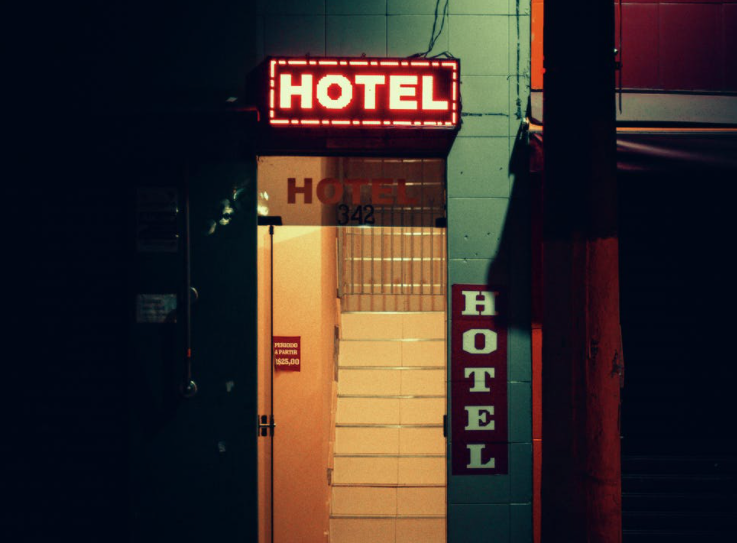
Are Commercial Landlords Liable for Human Trafficking on Their Property?
As a commercial landlord renting space to a business like a massage parlor, nail salon, or bar, are you liable for human trafficking occurring on your property? Many landlords clearly do not think so.
At Collective Liberty, we regularly monitor local news throughout North America to watch how trafficking and related exploitation issues are evolving. Over the past several years, we have noticed a trend when a business is identified as a trafficking venue, closed, and its managers and operatives arrested, and the landlord expresses shock and outrage.
Landlords - I Didn’t Know Is No Longer Good Enough
For example, after Sakura Spa in Newton, Iowa, was raided by police and shut down for selling commercial sex, it was revealed that the business was regularly advertising sexual services on Backpage. When reporters questioned the landlord, he stated, “It’s not my business; I don’t go there, I don’t know. I’m not into the social media stuff.”
Somehow in renting their commercial space for years, they have never visited the business, seen any website about the business, or seen any social media about it.
So we believe one of two things - either the landlord is completely ignorant and actively works to remain that way OR they know exactly what is going on and only claim ignorance after someone is caught.
Either way, the landlord makes a profit from the trafficking and sale of other human beings - does “I just didn’t know” really work as an excuse?
In most states, commercial landlords are not currently liable for the crimes that others commit on their property. But a number of lawsuits have been successfully filed against hotels and truck stop owners — that city and state attorneys can use as a model for filing lawsuits against landlords of illicit massage parlors and other commercial front brothels.
A sign of what’s to come: hotel owners hit with major lawsuits
A new lawsuit claims a North Little Rock motel turned a blind eye to sex trafficking. The victim reportedly tore curtains off the wall to alert a repairer, revealed bruises hoping that someone would notice, screamed while being beaten, and called the front desk clerk to call the police. She says that the police never came to check on her.

In Georgia, The Macon Judicial Circuit District Attorney's Office is filing a complaint against the Macon hotel Regency Inn & Suites. Between January 2018 and May 2020, law enforcement and emergency workers received more than 130 calls for help at the motel.
Human trafficking is pervasive in the hotel industry, with hotel or motel-based trafficking making up 73.3% of cases handled by the National Human Trafficking Hotline in 2016. This opens major hotel chains to liability for the actions that happen within their hotel rooms and on their property.
Commercial landlords have started to realize that they too could be held responsible for the human trafficking perpetrated by their tenants.
According to the 2018 report, “Human Trafficking in Illicit Massage Businesses,” there are over 9,000 illicit massage businesses currently operating in the U.S. Most of these rent spaces in small strip malls where they can operate under the radar. According to the National Human Trafficking Hotline, calls about massage parlor trafficking represent the second-highest volume of calls to the hotline, after escort services. Commercial landlords are in a unique position to either report the trafficking happening on their property, or become liable for their actions. Simply put, commercial landlords cannot afford to look the other way anymore.
How can you make sure no human trafficking is happening on your property?
There are many signs a landlord can look for to help identify potential human trafficking occurring on their property. While some of these signs are possible to identify from a distance (like how rent is paid or what your tenant’s internet presence looks like), others depend on a landlord actually visiting the property and speaking with neighbors. Keep in mind that claiming that you “never visit the property” is unlikely to spare you from liability for human trafficking occurring on the premises, particularly if it is a repeat offense.
Here’s a brief list of helpful questions to ask:
- Is the occupant the same person that signed the lease? Traffickers often use victim names on leases, to transfer blame and obscure roles within the organization.
- How is the rent paid? If it is paid in all cash each month, that could be a red flag.
- Is the business in compliance with your local business regulations (for example, if your tenant operates a massage parlor, do their operations appear to be in line with the local massage business ordinance, re: hours of operation, proper entrances and exits, etc.)?
- Does your lease explicitly prohibit illegal activities, including commercial sex, on the premises, and state that this qualifies as grounds for terminating the lease if discovered?
- Does your lease allow for people to be living on-site? If not, when you visit the business, does it look like people are living there? Do you see mattresses and/or a kitchen equipped to prepare meals (as opposed to a break room)?
- Do the customers appear to be almost entirely men, and are they coming and going frequently?
- Are neighboring business owners or residents reporting anything unusual, such as lots of people coming and going, or the business being open past normal business hours?
- Is there any evidence of the premises being used for commercial sex?
- Google the business name and address. Is it advertising on known commercial sex websites like Backpage or the massage section of Craigslist? Does it have sexually-oriented reviews on RubMaps?
- Have your tenants made any modifications to the rental property that cause concern or alarm?
What steps should you take if you suspect trafficking is happening?
If you suspect any illicit activity is occurring on the property, you should immediately notify the police. This will create a paper trail that clearly demonstrates proactive behavior on your part. Aside from routine visits to the property, and keeping your eyes open for red flags, do not attempt any additional investigation (like questioning employees, or staking out the massage parlor to see who is going in and out). Attempting to talk with potential victims can alert traffickers (who are often monitoring the women by camera), and if traffickers become suspicious, they may pick up and move their entire operation before victims can be identified and provided with services.


